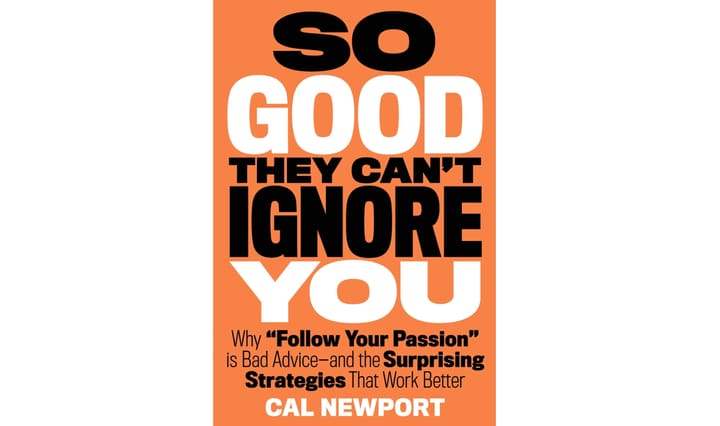My Favorite Books from the First Half of 2022

I managed to read 18 books during the first half of 2022. Below, I’ve included short summaries of my favorites that I’d recommend to just about anyone. You can find the complete list at the end.
The Art of Learning by Josh Waitzkin | Paperback
I loved this book. I'd recommend it to anyone. In this book, Josh Waitzkin outlines the learning process involved in becoming an International Master in chess at 16 years old, and subsequently a World Champion in Tai Chi Push Hands at 27 years old. For more details, see my book notes.
To walk a thorny road, we may cover its every inch with leather or we can make sandals.
Ender's Game by Orson Scott Card | Kindle
Ender's Game is a best-selling science-fiction novel published in 1985, that was later adapted into a movie in 2013. It's a phenomenal story about a brilliant young boy named Ender who is recruited by the military to join a special ops team designed to fight an aggressive alien race. I'd recommend it to anyone who enjoys sci-fi.
There is no teacher but the enemy. No one but the enemy will tell you what the enemy is going to do. No one but the enemy will ever teach you how to destroy and conquer. Only the enemy shows you where you are weak. Only the enemy tells you where he is strong. And the rules of the game are what you can do to him and what you can stop him from doing to you. I am your enemy from now on. From now on I am your teacher.
Loonshots by Safi Bachall | Paperback
Bahcall, a physicist-turned-businessman, uses phase transitions and the theory of emergence to explain how companies, organizations, and empires interact in order to nurture loonshots — the crazy ideas that are initially widely rejected before finding massive success, like statins and StarWars. I am impressed with Bahcall's ability connect several different stories and ideas into a unique and coherent argument. I enjoyed how he supplemented his writing with figures, graphs, and illustrations that appear on almost every page. I discovered him through a podcast episode with Tim Ferriss.
Deep Work by Cal Newport | Hardcover
Deep Work, as defined by Newport, is "a professional activity performed in a state of distraction-free concentration that pushes your cognitive capabilities to their limit. These efforts create new value, improve your skill, and are hard to replicate." Newport argues why Deep Work is valuable, rare, and meaningful, and he offers suggestions for how you can implement it into your life. For more details, see my book notes.
One of the chief things which my typical man has to learn is that the mental faculties are capable of a continuous hard activity; they do not tire like an arm or a leg. All they want is change, not rest — except in sleep.
The Lion Tracker's Guide to Life by Boyd Varty | Hardcover
After I heard Boyd Varty on The Tim Ferriss Show, I just had to buy his book. Varty is a life coach in South Africa who brings his clients on wilderness safaris to compliment their healing process. Through vivid storytelling, Varty uses lion tracking as an analogy for finding one's purpose in life. It's a relatively short book of only 160 pages, devoid of extraneous words. I'd recommend it to anyone and I would read it again in the future.
We must learn to read the subtle tracks of the body, the way it relaxes and opens when something feels right, the contraction and tightness when we are not where we are meant to be. Sometimes the body will have to get sick before we will listen to what it is saying to us.
Fahrenheit 451 by Ray Bradbury | Paperback
I was supposed to read this book in my 7th grade English class, but I am only just completing the assignment 13 years later. It takes place in a futuristic dystopian society where books are illegal and anyone who owned one was arrested or killed and their home was burnt to the ground along with all their books. It's surprising to me how the ideas in this classic novel from the 1950s remain relevant today.
If you don't want a man unhappy politically, don't give him two sides to a question to worry him; give him one. Better yet, give him none. Let him forget there is such a thing as war. ... Cram them full of noncombustible data, chock them so damn full of 'facts' they feel stuffed, but absolutely 'brilliant' with information. Then they'll feel they're thinking, they'll get a sense of motion without moving. And they'll be happy ...
The Psychology of Money by Morgan Housel | Audiobook
This book is a more detailed version of an article by Housel in 2018 (also called The Psychology of Money) in which he describes the 20 most common biases and mistakes he's noticed pop up as people deal with money. As someone who is not very proficient in finance, I found this book to be enlightening. Housel argues that one does not necessarily need to be an expert in investing or finance in order to become wealthy; rather, a person's wealth can be explained by their behavior with money.
Time of Contempt by Andrzej Sapkowski | Kindle
Time of Contempt is the 4th book in a series of 8, based on the character Geralt of Rivia, a 13th century monster killer. I began reading these books soon after I watched the first season of The Witcher on Netflix because I thought it was so good. I've been reading them at night before bed for the past few months.
We know little about love. Love is like a pear. A pear is sweet and has a distinct shape. Try to define the shape of a pear.
Atomic Habits by James Clear | Audiobook
Atomic Habits is a worldwide bestseller for good reason. It is packed with wisdom and Clear presents the information in such a way that one can immediately begin forming new habits as they progress through the book. Although many of the concepts felt intuitive to me, I still think it's important to hear them clearly articulated (or see them outlined) in one place. I'd recommend this book to anyone looking for some motivation or tips on starting and maintaining new habits, or breaking old ones. For more details, see my book notes.
“You do not rise to the level of your goals; you fall to the level of your systems.”
Antifragile by Nassim Nicholas Taleb | Paperback
Antifragile is a dense 450+ page book packed with insights on a phenomenon that I am fascinated by, particularly within medicine. Nassim Nicholas Taleb, a modern-day philosopher, coins the term Antifragile as something that gains from chaos and disorder, and explains how it is a critical process in various systems, including economics, finance, and medicine. I found it to be very insightful, however it seemed to get more challenging to read as I progressed.
Some things benefit from shocks; they thrive and grow when exposed to volatility, randomness, disorder, and stressors and love adventure, risk, and uncertainty. Yet, in spite of the ubiquity of the phenomenon, there is no word for the exact opposite of fragile. Let us call it antifragile.
Complete Reading List
- The Cure Within by Anne Harrington
- The Art of Learning by Josh Waitzkin
- Ender’s Game by Orson Scott Card
- The War of Art by Steven Pressfield
- Loonshots by Safi Bachall
- Ghost Soldiers by Hampton Sides
- Deep Work by Cal Newport
- The Lion Tracker’s Guide to Life by Boyd Varty
- Sphere by Michael Crichton
- Draft No. 4 by John McPhee
- Fahrenheit 451 by Ray Bradbury
- The Ocean at the End of the Lane by Neil Gaiman
- One Day in the Life of Ivan Denisovich by Alexander Solzhenitsyn
- Lord of the Flies by William Golding
- The Psychology of Money by Morgan Housel
- Time of Contempt by Andrzej Sapkowski
- Atomic Habits by James Clear
- Antifragile by Nassim Nicholas Taleb




Comments ()